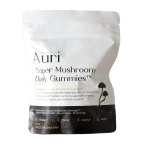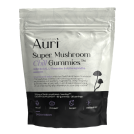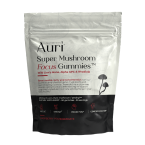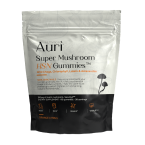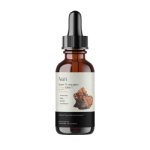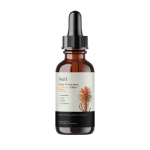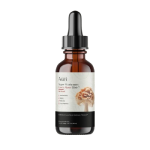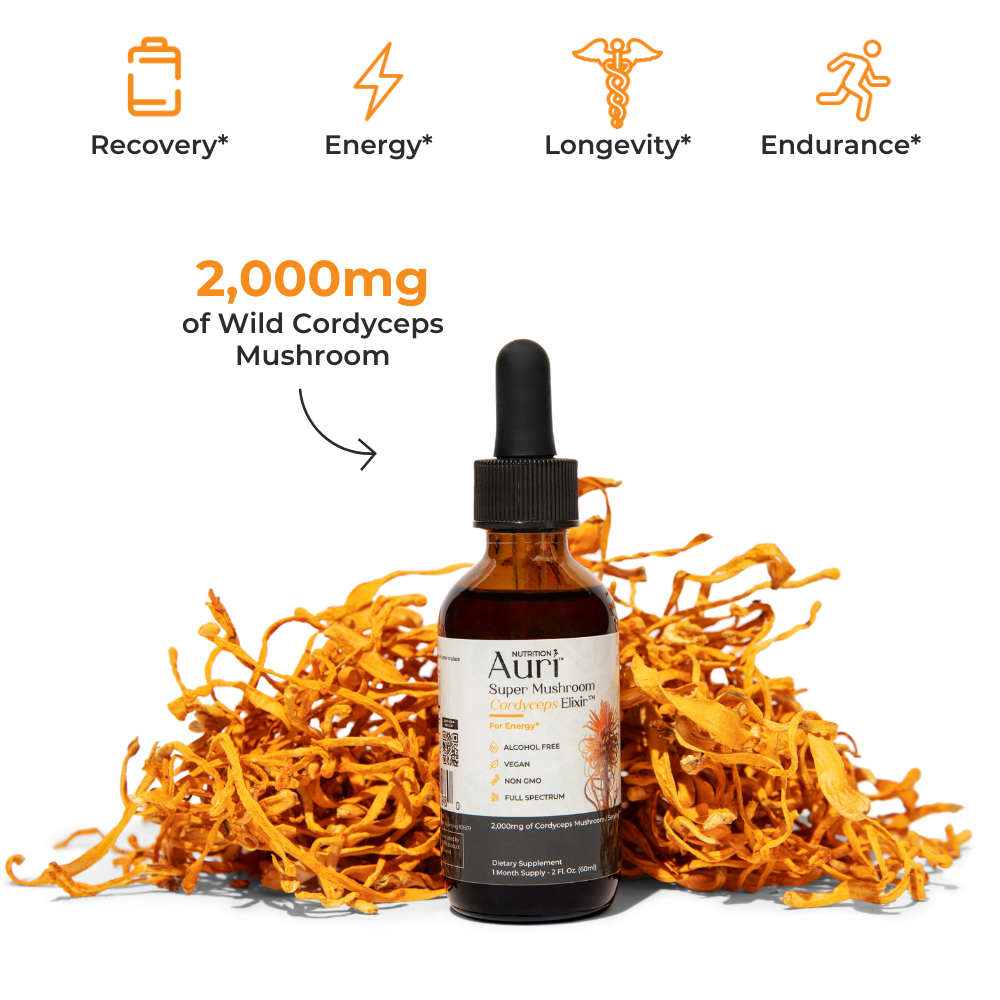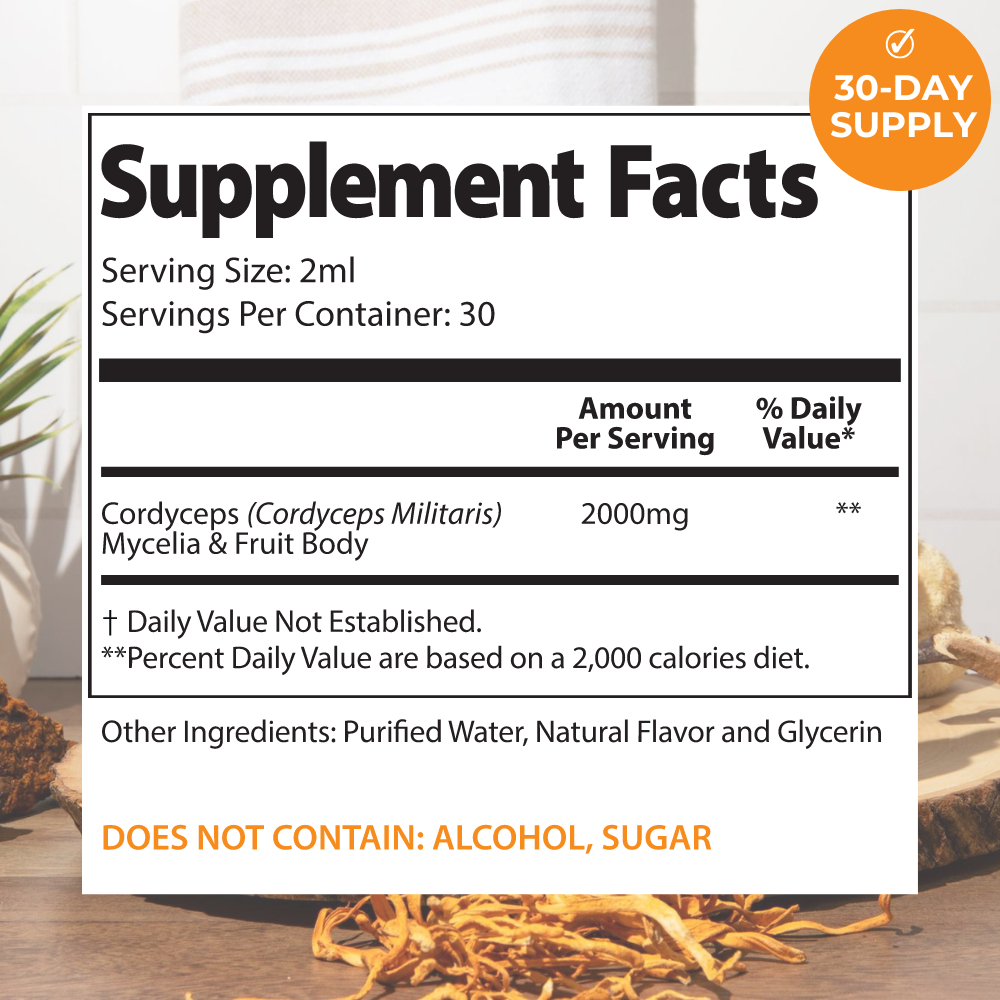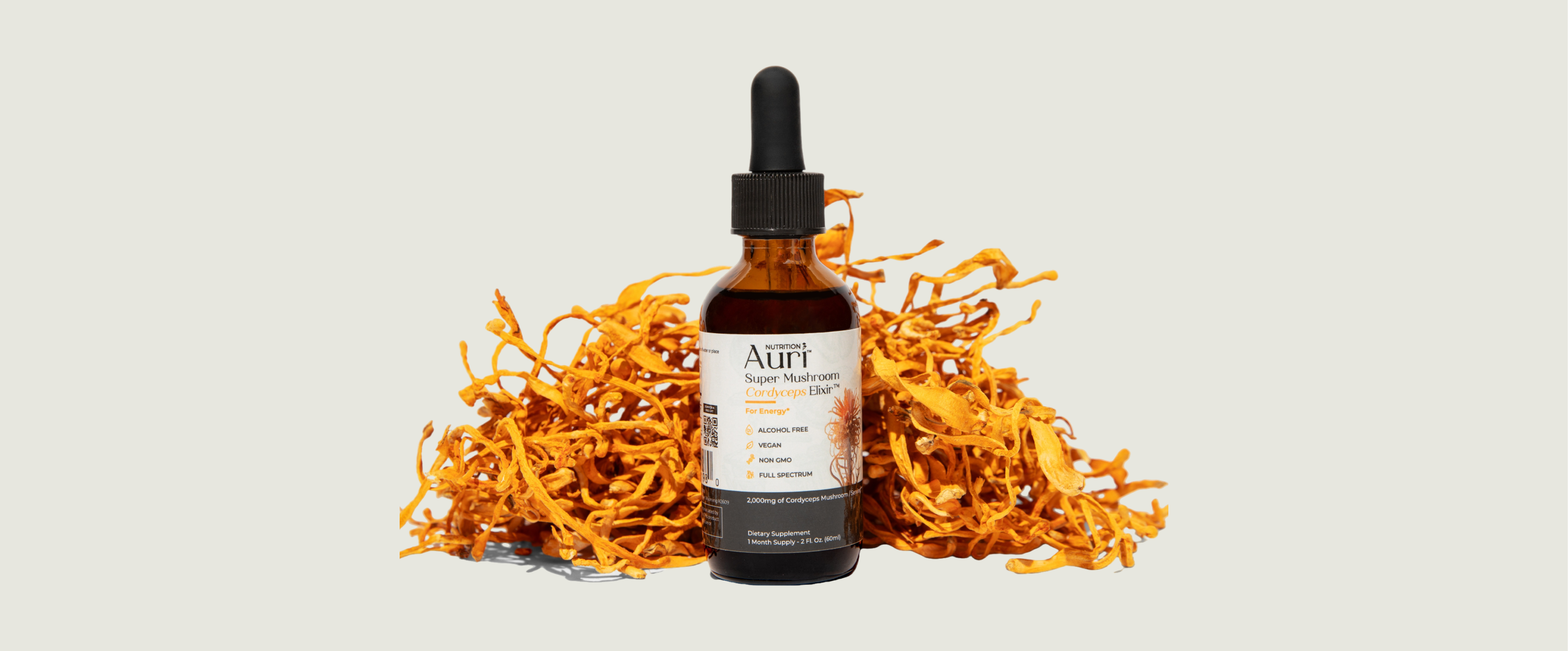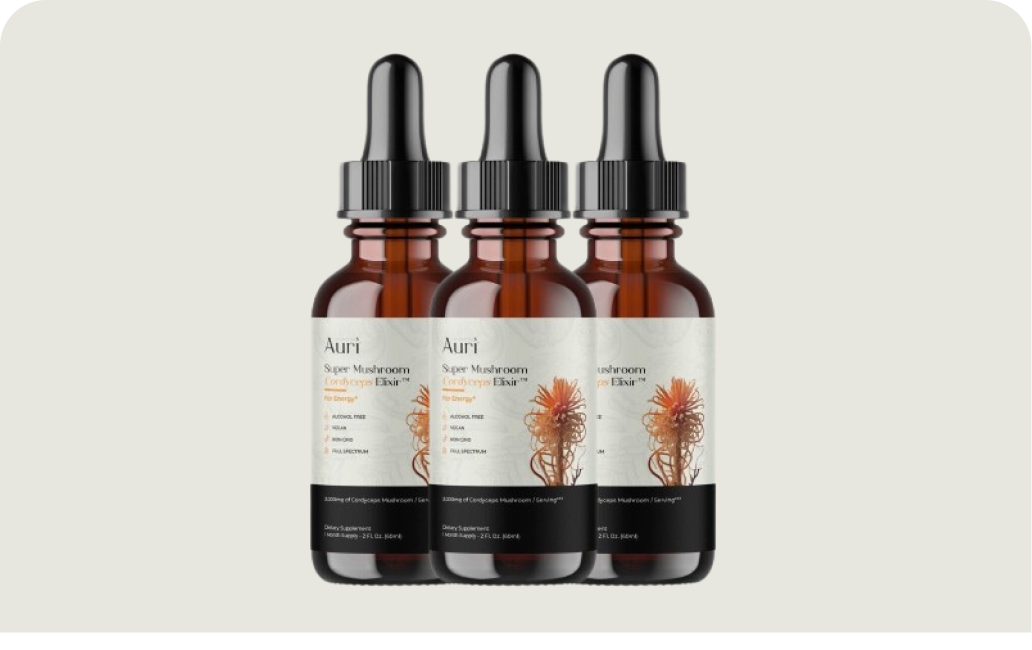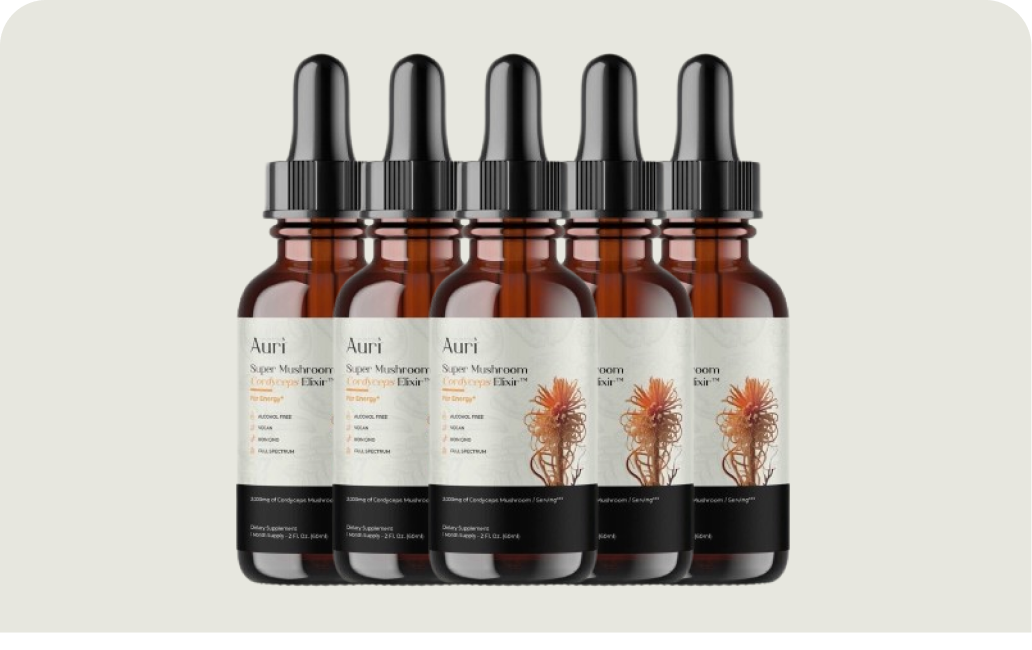Super Mushroom Cordyceps Elixir™
"As an avid runner, I’m always on the lookout for natural ways to boost my stamina. The Super Mushroom Cordyceps Elixir has become a staple in my training regimen. I’ve noticed significant improvements in my endurance, and I’m not as wiped out after long runs. It’s like natural fuel for your body!"
Laura J., United States
Here's what you'll get:
We recommend subscribing to explore a variety of our delicious mushroom gummies and elixirs!
-
Free US Shipping On Orders $75+
-
Fast 3-5 Day US Delivery
-
60-Day Moneyback Guarantee
BENEFITS
A Complete Elixir To Become Your Best Self
-
Elevate Physical Performance*
Cordyceps mushrooms are renowned for their ability to naturally enhance energy levels. Through increasing ATP production at the cellular level, Cordyceps provides a sustained energy boost. -
Promote Stamina & Endurance*
Athletes often incorporate Cordyceps for its natural ability to support stamina and endurance levels. By supporting blood oxygen levels and ATP production, Cordyceps supports physical performance and helps athletes push their limits -
Fortify Overall Well-Being*
Cordyceps mushrooms are believed to contain properties that contribute to overall wellness and vitality. They support respiratory health and immune system function, which further underscores their role in promoting vitality and graceful aging
UNLOCK MORE BY SUBSCRIBING
Unlock More with Subscription - Free Shipping, Discounts & VIP Benefits

|
One-Time Purchasers | |
|---|---|---|
FREE SHIPPING On First Order |
||
SUPRISE GIFT With First Refill |
||
NO CONTRACT Cancel With Ease |
||
OUT OF STOCK PROTECTION |
||
EXCLUSIVE DISCOUNT |
||
HASSLE-FREE CONVENIENCE |
MOST SUPPLEMENTS WASTE YOUR MONEY
Our bodies are not efficient — only a small share of what we consume gets absorbed into our bodies. As a result, the supplements that we take into the stomach produce little to no result. Try elixir supplements and increase absorption rates up to 90%.
Auri Mushroom Elixir
Capsule / Tablet Supplements
HOW TO USE
Step 1
Draw up the recommended dosage of liquid into the dropper.
Step 2
Drop two full droppers into an 8oz cup of water. For faster absorption, put two droppers under your tongue for one minute then swallow.
Step 3
Value cordyceps, which contains cordycepin, for its amazing role in boosting energy production
TASTY & DELICIOUS
Mushrooms have never tasted THIS good before. Get the mushrooms you love and benefit from, without the nasty taste from powders and oils.
-
NOGMOs, GELATIN, ALCOHOL, FOOD DYES, FILLERS & JUNK
-
YESVEGAN, GLUTEN FREE, TASTES GREAT, REAL MUSHROOMS, LAB TESTED
DON'T TAKE OUR WORD...
Loved By Thousands Around The Globe
OUR PROMISE
-
Feels (and tastes like) magic.
-
Crafted carfully with premium ingredients
-
Rigorously lab tested
60-DAY MONEYBACK GUARANTEE
We’d be shocked if you didn’t feel the effects, and enjoy the benefits of the Super Mushroom Cordyceps Elixir. But in the highly unlikely event that you’re not happy in any way — we’ll give you every cent back. No hassle. No hoops to jump through.
You’re protected by our 60-Day 100% Moneyback Guarantee. Email us at hello@tryauri.com and we’ll return every dollar you paid.
BUNDLE & SAVE MORE!
UP TO $100 OFF-

-
3 PACK - 90 SERVINGS
-
$45 OFF
Super Mushroom Cordyceps Elixir™
Spring Sale EXCLUSIVE$104.99$177.95 -
-

-
5 PACK - 150 SERVINGS
-
$100 OFF
Super Mushroom Cordyceps Elixir™
Spring Sale EXCLUSIVE$150.00$299.99 -
FAQs
Use the below FAQ topics to find an answer! Still need help?
Please email us at hello@tryauri.com :)



